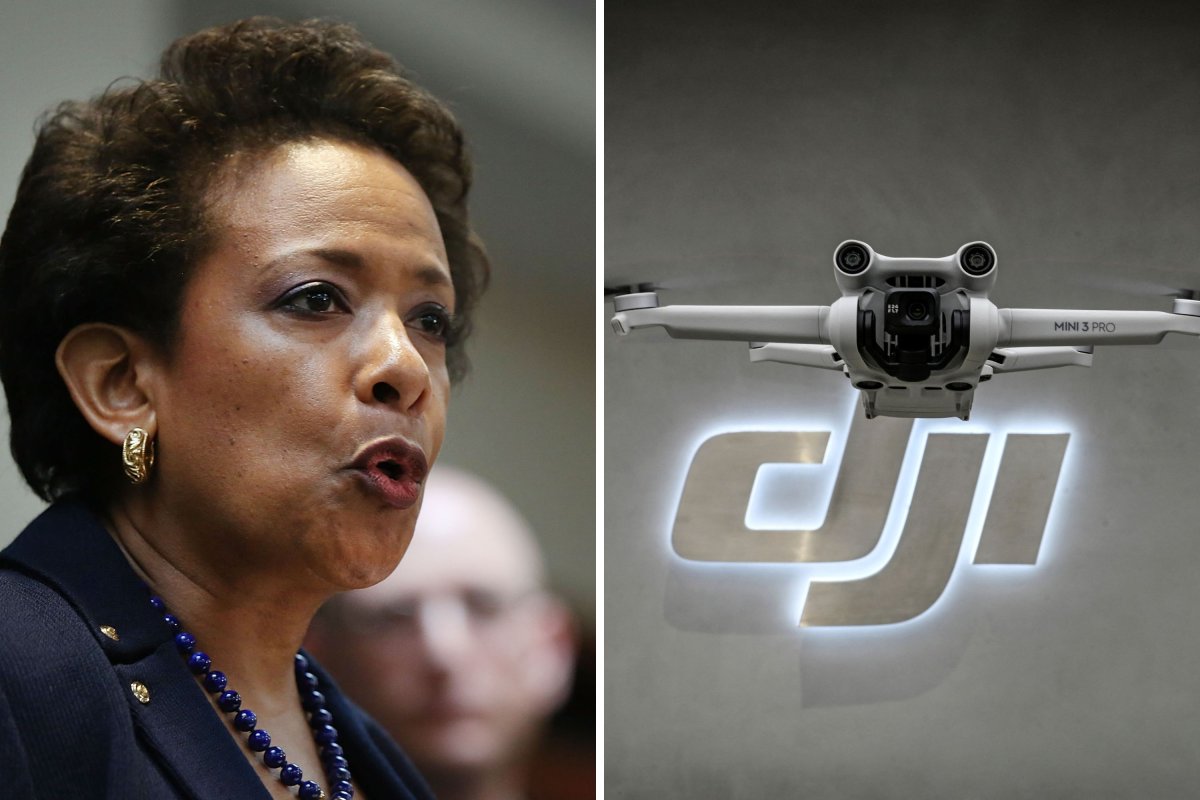Former Attorney General Loretta Lynch, who served under President Barack Obama, is representing DJI, the world's largest drone manufacturer, in a lawsuit against the U.S. Department of Defense (DoD).
The lawsuit, filed in federal court on October 18, challenges the Pentagon's designation of DJI as a "Chinese Military Company" (CMC). The classification has imposed severe restrictions on DJI, which the company claims have caused substantial financial and reputational damage.
In its complaint, DJI argues that the Pentagon's designation is legally flawed and unjustified. The company maintains that it operates solely in the consumer and commercial drone sectors and has no ties to China's military.
"DJI is neither owned nor controlled by the Chinese military and does not manufacture military products," the company said in the lawsuit.

DJI's drones make up half of the commercial drone market in the U.S. and are commonly used for non-military purposes such as search-and-rescue and disaster relief. Despite multiple attempts to engage with the Pentagon, the company said that the DoD has refused to provide evidence supporting the CMC classification.
"After attempting to engage with the DoD for more than sixteen months, DJI determined it had no alternative but to seek relief in federal court," the company said in its legal filing. DJI claims the DoD's designation has led to financial losses, canceled contracts and damaged relationships with U.S. customers and partners.
Lynch, now a partner at Paul, Weiss, Rifkind, Wharton & Garrison LLP, is leading DJI's legal fight against the U.S. government. Her involvement has sparked political criticism, particularly from Republican lawmakers. Representative Elise Stefanik of New York was one of the first to accuse Lynch of "selling out" to the Chinese Communist Party.
My statement on former Obama AG suing U.S. government on behalf of Chinese military company DJI:
“Barack Obama’s former Attorney General Loretta Lynch has turned her back on her nation, selling out to our greatest adversary Communist China and suing the United States on behalf…
"Barack Obama's former Attorney General Loretta Lynch has turned her back on her nation, selling out to our greatest adversary, Communist China, by suing the United States on behalf of CCP-owned drone company DJI," Stefanik said in a statement Monday.
Stefanik has been a leading advocate in Congress for banning DJI products from U.S. airspace over national security concerns.
DJI's legal team argues that the company has been unfairly targeted and that the DoD has failed to justify its actions. In a letter to the Pentagon before filing the lawsuit, the firm requested DJI's delisting, citing damage to its business operations and the company's right to due process.
Newsweek reached out to the Pentagon and Paul, Weiss, Rifkind, Wharton & Garrison LLP for comment on Monday.
DJI's lawsuit also highlights the company's efforts to comply with U.S. export laws and national security policies. In 2022, DJI halted sales to Russia and Ukraine to prevent its products from being used in the ongoing war. The company also introduced geofencing technology to prevent drones from operating in restricted areas, such as airports and military bases.
Despite these efforts, DJI continues to face accusations of espionage and ties to the Chinese government. In 2021, the U.S. Treasury Department placed investment restrictions on DJI, citing its alleged role in assisting Chinese government surveillance of Uyghur Muslims in Xinjiang. DJI has denied these claims, saying that its drones are used for peaceful purposes and have no connection to government surveillance.
"DJI prohibits doing business with entities that intend to use DJI products for combat," the company says in the lawsuit.
The outcome of the case could have significant implications for DJI's business and the broader U.S.-China technology standoff. A ruling in favor of DJI could encourage other Chinese companies to challenge their inclusion on U.S. blacklists. However, a victory for the Pentagon would reinforce the U.S. government's hardline stance on Chinese tech firms, further restricting their access to the American market.




















 English (US) ·
English (US) ·